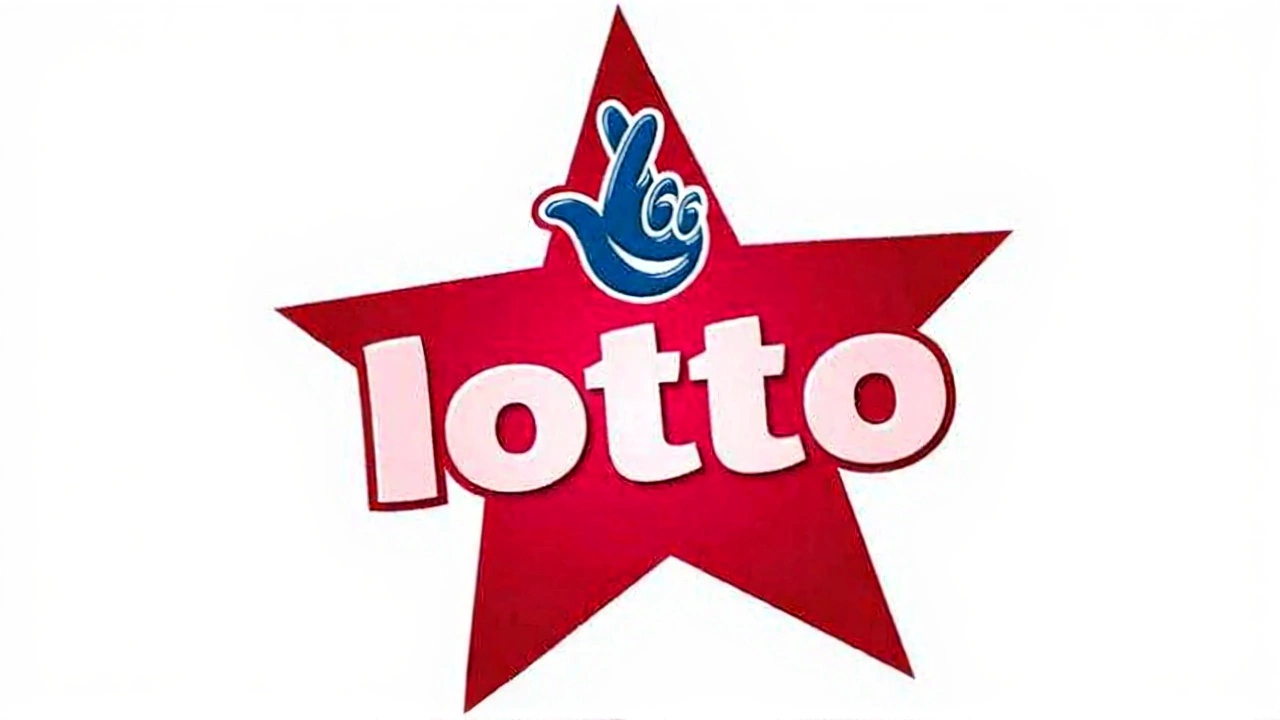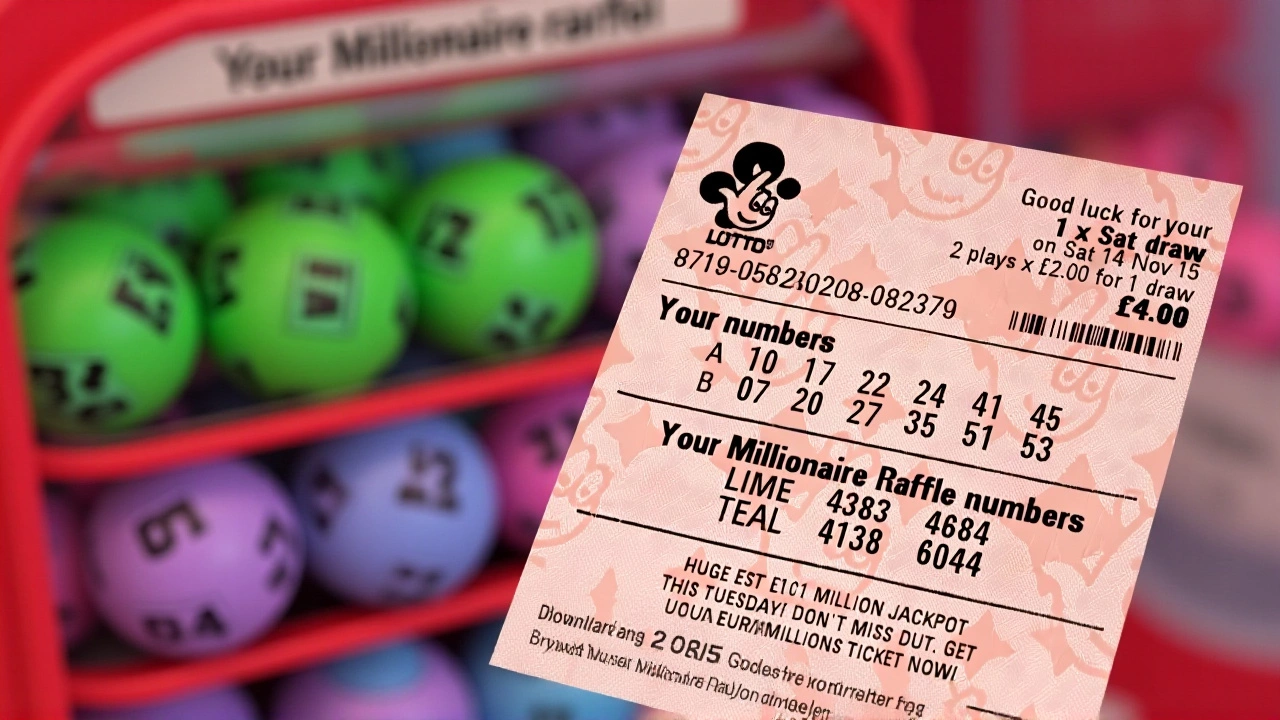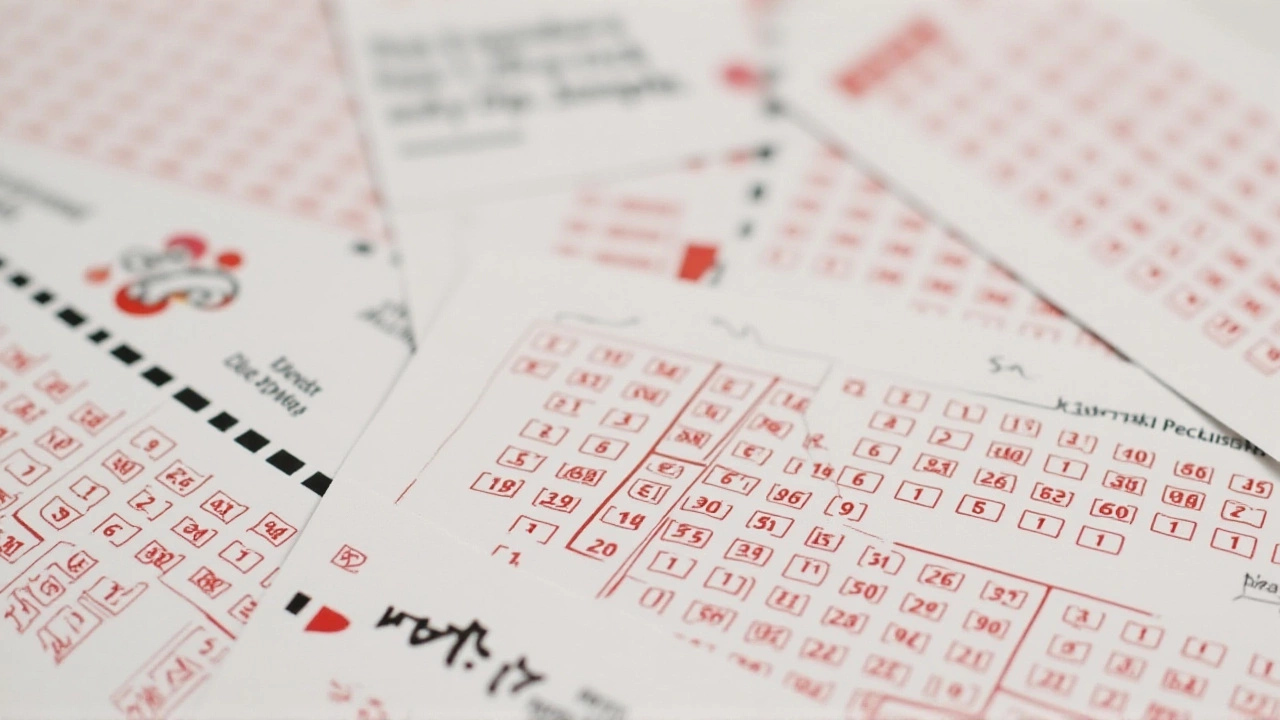When National Lottery spun its balls on Saturday night, the result left everyone staring at their tickets in disbelief: no one hit the six‑number Lotto jackpot of £4,015,491.
The draw, identified as Lotto Draw #2,892Watford, United Kingdom, took place at the National Lottery studios in Watford, Hertfordshire at roughly 20:00 BST. Using Ball Set 3 and the legendary Arthur ball‑machine, the six winning numbers—15, 20, 39, 43, 49, 59—were drawn, with 56 as the Bonus Ball.
Background and History of the Lotto Game
Since its launch on 19 November 1994, the National Lottery has grown into a cultural institution, channelling more than £35 billion to good causes ranging from grassroots sports to heritage preservation. A pivotal change came in October 2015 when the number pool expanded from 49 to 59, reshaping the odds and prize tiers investors and casual players alike have come to expect.
The franchise is now run by Allwyn Entertainment Limited, which took over from Camelot Group in February 2024. Allwyn promises to keep the draw’s integrity intact, a promise overseen by the Gambling Commission, headquartered in Birmingham. Both bodies operate under the umbrella of the Department for Digital, Culture, Media & Sport.
Details of the September 9 2023 Draw
The Saturday draw followed the regular bi‑weekly schedule set out by the National Lottery etc. Act 1993. Ball Set 3 and the Arthur machine were both certified for this session, a routine check that the Gambling Commission conducts to ensure randomness.
Here’s the breakdown of the numbers and what they meant for different prize tiers:
- Match 6 (Jackpot): £4,015,491 – No winners.
- Match 5 + Bonus: £1,000,000 – No winners.
- Match 5: 47 winners, each £1,750.
- Match 4: 2,998 winners, each £140.
- Match 3: 78,648 winners, each £30.
- Match 2: 831,377 players earned a free Lucky Dip ticket.
All together, 913,070 tickets received a prize, totalling £2,861,410. The claim deadline – 7 March 2024 – has now passed, meaning any unclaimed funds have already been funneled back into future prize pools and charitable projects.
Prize Distribution and Winners’ Experience
For the 47 lucky Match 5 winners, a £1,750 cheque felt like a pleasant surprise rather than a life‑changing windfall. Meanwhile, the 2,998 Match 4 players walked away with a modest £140, a sum some used to treat themselves to a night out or a small home upgrade.
One winner from Scotland recounted, “I thought I’d hit the big one, but even the £1,750 was a nice boost after a tough year.” The sheer volume of Match 3 winners – nearly 80 thousand – underscores how the Lotto structure balances the dream of a massive win with everyday, achievable payouts.

Regulatory Oversight and Good Causes
Every draw is logged and audited by the Gambling Commission. Their remit includes verifying that the Arthur machine operates within strict tolerance levels and that Ball Set 3 meets exact weight specifications. Any irregularity would trigger an immediate investigation and potentially a re‑draw.
Beyond the thrill of winning, the National Lottery’s core mission is to support public benefit projects. In the 2023‑24 financial year, roughly £3.5 billion of ticket sales were earmarked for community initiatives, ranging from youth sports leagues in Wales to heritage conservation in Northern Ireland. Even when the jackpot rolls over, that goodwill continues to grow.
What the Rollover Means for Players
With the top prize untouched, the £4,015,491 jackpot rolled over to the next draw on Wednesday, 13 September 2023. That bump nudges the prize pool into the £5 million‑plus territory, raising the stakes for anyone buying a ticket in the upcoming session.
Analysts at a leading market‑research firm note that rollover events typically spark a 12‑15 % surge in ticket sales, as casual players jump on the heightened excitement. For seasoned players, the larger pool simply adds another layer to the odds‑calculation they run in their heads while choosing numbers.
In short, the missed jackpot is a temporary disappointment, but it also fuels the next round of hopefuls, keeps the charity contributions flowing, and sustains the National Lottery’s role as a staple of British leisure culture.

Key Facts
- Date of draw: 9 September 2023, 20:00 BST.
- Location: National Lottery studios, Watford, Hertfordshire.
- Winning numbers: 15‑20‑39‑43‑49‑59; Bonus Ball 56.
- Jackpot amount: £4,015,491 (unclaimed).
- Total winners: 913,070; total prize fund: £2,861,410.
Frequently Asked Questions
Why did the jackpot roll over to the next draw?
The jackpot rolls over whenever no ticket matches all six main numbers. In this case, none of the 913,070 entries hit the exact combination, so the £4,015,491 prize was added to the following Wednesday draw’s pool, increasing that draw’s jackpot to over £5 million.
How are unclaimed prizes handled after the claim deadline?
Unclaimed funds are automatically transferred back into the prize pool for future draws and also boost the National Lottery’s contributions to good‑cause projects, as stipulated by the Gambling Commission’s regulations.
Who oversees the integrity of the Lotto draw?
The Gambling Commission, based in Birmingham, conducts regular audits of the ball sets, machines, and procedural safeguards to ensure the draw remains fair and random.
What impact does a rollover have on ticket sales?
Historical data shows rollovers typically lift ticket sales by about 12‑15 % as both regular players and occasional participants are drawn to the larger prize, creating a short‑term spike in revenue for the National Lottery.
How does the National Lottery contribute to charitable causes?
Each draw channels a portion of ticket sales to the National Lottery Distribution Fund. In 2023‑24, roughly £3.5 billion was allocated to initiatives covering sports, arts, heritage, and community projects across England, Scotland, Wales, and Northern Ireland.
